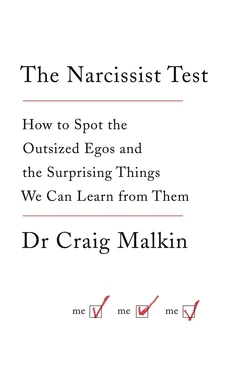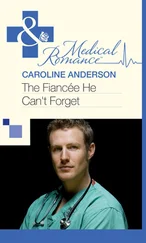Joe had thrown up his hands in disgust, and growled, “You never let me do anything for you!”
“That’s the problem,” I said. “Sometimes people need us to be able to take center stage. It helps them feel special, too.”
Sandy is a great example of the dangers of living at around 2 on the spectrum. The people who dwell there aren’t just unfamiliar with feeling special, they’re afraid of it.
Most of us feel a little boost when we receive praise and attention for our accomplishments. For a time, the spotlight has shifted to us. But for people near 0—extreme echoists—even positive attention can be terrifying. It’s not necessarily because they feel ashamed or defective, though some might. It’s just that they’re convinced that being ordinary is the safest way to live. They stay in the shadows because, as the Japanese saying goes, “The nail that stands out gets pounded down.” Even more, they dread becoming a burden. This isn’t the feigned concern of martyrs who proclaim, “I don’t want to put you to any trouble,” while loudly voicing complaints that demand everyone’s attention—this is real fear.
People like Sandy worry so deeply about seeming needy or selfish that it’s often difficult for them to recognize they have any needs at all. It’s also exhausting working so hard to expect nothing at all, which is why people at this end of the spectrum can lapse into confusing bouts of sadness. They feel depleted, but what they need to replenish themselves is buried so deep they’re not even sure how to ask for it.
The most common feature of echoists is a deep dread of becoming narcissistic in any way. They’re constantly on guard for any signs of selfishness or arrogance in themselves, so much so that they can’t even enjoy being doted upon. Their vigilance comes with a steep price. People feel closer to us when we allow ourselves to become a gleam in their eye. Enjoying our moments on the pedestal elevates not just us, but also those we love.
Life at 9: Self-Serving
Gary, 24, single, is a business school student who was referred to me by his dean, an old friend of his parents, who’d grown concerned and irate about his absences from class.
“I’ve got bigger fish to fry than going to class,” Gary told me, smiling broadly. “I’m starting up a company with a friend. We got the idea one night when we’d been drinking for hours. But it’s a great plan.” He’d arrived ten minutes late to my office, but didn’t seem the least bit contrite about being tardy. “Just came from an investor meeting,” he’d explained, grasping my hand firmly in greeting.
“Terrific,” I responded. “Congrats.”
“I know how to sell myself,” he said, shrugging. “It’s what I do.”
I could see what he meant. Sitting in a classic power position—arms clasped behind his neck, elbows out—he looked more like a business executive than a student. He dressed the part, too—a sleek navy blue suit, gleaming leather shoes, a red-and-blue striped tie.
“Are you any good at this?” he asked. “I don’t have much time to waste.”
“Guess we’ll find out,” I said, feeling sure he’d already decided. “As I understand it, you might get kicked out because you’ve missed so many papers and assignments.”
“Dean tell you that?” he shot back, snidely. He leaned back, crossing his arms. “Listen, they have to keep me in school. I might be the best thing that’s happened to them in a while. The least they can do is try to hold on to me. If they don’t, they’ll see what a mistake they’ve made when my idea takes off and I make a killing.”
“You can appreciate the dean’s position, though?” I asked, curious if he had any perspective on how much jeopardy he’d placed himself in.
“I can talk my parents into anything,” he assured me. “I can talk pretty much anyone into anything,” he added. “They’ll convince him just like they did before.” He combed his fingers though his hair. “People are making a big deal out of nothing. I can crank out the rest of my work, no problem.”
“What made you decide to come to see me?” I asked. “You didn’t have to.”
“I figured you just need to give me a clean bill of health,” he answered matter-of-factly.
“Ah,” I said. “It doesn’t quite work that way, unfortunately. We need”—here he cut me off.
“Look,” he said, “I get that I have to convince the dean’s bosses. That’s why my parents are paying for this. If you can’t help me, I’m sure I can find someone else to get the job done.” He started getting up to leave.
“You can leave,” I said. “But part of the problem is you don’t think you need anyone’s help. You’ve got a lot of talent and ambition, which is fantastic. But you can’t rely on that alone to carry you. If that worked, you wouldn’t be sitting across from me now. And the dean wouldn’t be meeting with the school next Monday about whether or not this is your last semester there.”
That seemed to get his attention. He sat back down.
This is the face of narcissism we all know and loathe: arrogant, entitled—at times frightening. People at 9, extreme narcissists, often think themselves above normal rules and expectations. Whatever they’re paid, it’s not enough. Whatever wrongs they commit against others, they’re explained away. It never occurred to Gary for an instant that he might really be kicked out. Mysteriously, he believed that the university needed him far more than he needed it. He was convinced that his talent as an entrepreneur would save him.
People who live at 9 or 10 cling to their special status for dear life. Their belief that they’re somehow above the rest of us mere mortals might even reach delusional levels, as it did for Gary, who honestly felt that he could do whatever he wanted and still remain in school. This sense of being a “special exception” also explains many other characteristics of people who live on the far right—becoming angry at the smallest slights, willing to do whatever it takes to get what they want, seeing other people as extensions of themselves.
Extreme narcissism blinds people to the feelings of others. That’s one of the reasons we find it so unpleasant to be around people at this high end of the scale. The men and women who live near 10 are too preoccupied with their own need to be recognized and rewarded to consider the needs of other people.
Gary’s parents had been on the phone with him nightly for a week, urging him to seek help. “I’m at my wit’s end,” his mother had said, in a tearful message left on my voice mail. Gary shrugged it off. “She gets that way.” The dean had been a staunch defender, despite Gary’s blithe attitude about his imminent expulsion. He’d known Gary since he was a toddler and clearly thought of him as a son. The whole situation had obviously been taking its toll—the dean sounded exhausted in his messages. But Gary seemed oblivious to just how anxious he’d made everyone around him, especially those who cared about him. “The dean’s as big a worrier as my mom.”
Those on the far right tend to regard others as tools for their personal use. Gary treated me, from the start, like a simple-minded servant. He quickly turned on me when I told him I couldn’t just write a letter telling the administration he was fine.
Gary also had no insight into his problems. When feeling special becomes an addiction, there’s no room to acknowledge flaws, no matter how obvious they are to everyone else. People like Gary are notoriously bad partners and friends. Their lack of empathy hobbles them relationally, leading to frequent lies and infidelity. But people who live around 9 don’t see it. In fact, ask them if they’re comfortable with deeper intimacy, capable of sharing sadness and loneliness with those they care about, and they’ll often say they’re good at that, too. They have such little self-awareness they can’t even recognize the limits of their ability to love.
Читать дальше












